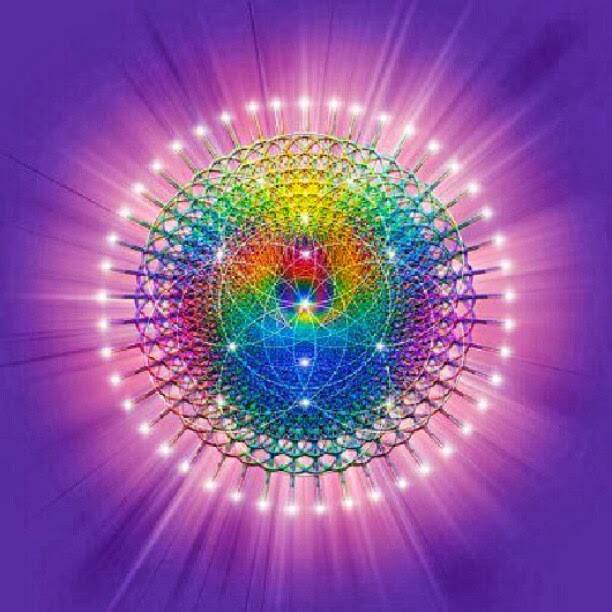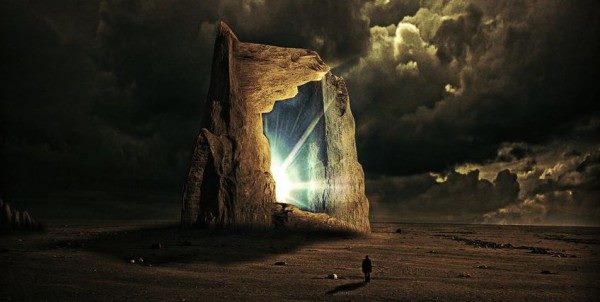The theme of We are no longer in the profane world, we must let our metals outside the temple includes the analysis of the very roots of the Scottish Order putting into the center the man as a spiritual being but also the spirituality of the Scotish Order and its universal character. The Freemasonry teaches the people how to understand themselves, their environment, social circumstances and the civilizing guidelines. Thus the personal convictions and views are either confirmed or modified, the choice is to be made personally. In the Freemason brotherhood the term „metals“ symbolizes wealth, power, influence, and other favorable living conditions. Unfortunately, this term sometimes includes greed, arrogance and vanity eliminating modesty, tolerance, fraternal love, benevolence, goodwill and, first of all, sincerity.
But let us start from the beginning. In Freemasonry the term „leave the metals“ determines the act of the profanes before the ceremony of initiation. The symbolism of this ancient ritual act comes, according to the opinion of some interpreters, from the myth of the Babilonian godess Ishtar who, before her descent to the underground world, took off all her jewelry. In Freemasonry, leaving the metals in front of the temple gate by the profane symbolise not only modesty, fraternal love and charity but also the abandonment of real dogmatic conviction or prejudice. It represents, indeed, a necessity of the initiate to join the Masonic fraternity, free from prejudice and with a scrupulous clean soul. Mr Armando Corona, the Grand Master of the Grand Masonic Lodge of Italy asked in an interview: Does the ritual of leaving metals in front of the temple represents symbolically the condamnation of abundance, he replied: No, it only means that in this very moment the new member cannot help anyone in material sense for he has no goods. It may happen that others are in the same position, but the support of all brothers may solve the problem. Therefore, the symbolic gesture of leaving metals in front of the Temple gate presents the preparing of the spirit of every individual for fraternal solidarity and mutual support.

According to a generally acepted definition, the Mason is a free man of good reputation. The Fraternity of Freemasons provides the opportunity for every member of the Masonry to build and improve himself, through rites and spiritual work. Each member of Freemasonry can be a single brick that symbolically contributes to the building of the temple of humanity. The construction of the temple of humanity represents the common link of all the Freemasons of the world. For many centuries Freemasons follow these three principles:
• Fraternal love – every Freemason will show tolerance and respect to the opinion of others and will communicate with goodwill and comprehension;
• Benefaction – Freemasons will ,when it is possible, always be of use and will take care not only of brothers but of the whole community. They will act in a charitable manner and by individual volontary work.
• Truth Freemasons respect the truth; they impose high moral standards and aspire to realize them in their own life.
Freemasons beleive these principles represent the way of attending higher moral and spiritual standards.

In short, the story of Fremasonry is the story of people with all their characteristical differencies, independent opinions and actions, but, however, very much depending on each other. The Freemasonry gives refuge and spiritual safety to all members more than any other organization or association. This is felt only when it becomes clear that Freemasonry is a double-layer organization and has, therefore, two contents. Its outward side consists of allegoric stories, rites and symbols; that are audible and viiisible.
The other, the inner side is invisible. It is intellectual and spiritual and is accessible only to those members using their imagination in order to purify their life. The well-known ideologist of Freemasonry, Mr. Albert Pike, has written ten brilliant recomandations, the so called Freemason Decalogue. If we followed them our life would be much more harmonic and fruitful.
The most important are: Do not do to others what you wouldn’t like to be done to you, Do nothing you would not like to remember. Listen a lot, speak a bit, do good, etc. On the monument of Albert Pike in Washington, his vital testament reads: What we have done for ourselves will disapear with us. What we have done for others and for the world remains and becomes immortal.
The devotion and the preference for metals is not characteristic for the Freemason brotherhood. On the contrary, the Freemasonry should be considered as a spiritual movement or a spiritual school. In this way everything gone through and learnt during the performance of Freemason ceremonies has a precisely defined guideline of self-perception. Freemason brothers, work hard on themselves; they treat the raw stone to get a more perfect form; this doesn’t mean „amassing metals“ The Freemason brotherhood brings together a remarkable part of the elite of every society, intelectuals, scientists, businessmen and persons of influemnce; to everyone it forbids discussion on getting wealth and influence although these are the essential subjects dominating the civillization, social and interpersonnal relations.
In this way people with influence are limited to realize active changes or influences in these segments of life using brothers connections. Thus, on one hand, this principle of forbidding allows dedication to spirituality, and on the other hand it represents the suppression of an organized attempt of most competent people to act for the development of humanity. This sounds almost paradoxical, but it’s a fact.
The question of metals is essential in two aspects: the wish for power, possession of wealth and other benefits in everyday life, are not mentioned as guidelines, or qualities that the Freemasonry will develop in people. We get free of metals before our admission which means symbolically that we are freed of greedines and with a pure heart and mind we become aware of ourselves. However, a huge part of membership is sufficiently well off not to worry too much for metals. For them, the brotherhood connecting powerful and competent persons, represents a good channel for implementation of communication and cooperation among people who are recognized for their harmonized nature. A a significant part of members of the Freemasonry, really does not think of metals acting and consciously acting upon the real natural needs and possibilities of both individuals and groups
The wealth or the symbolic metals are not the final target of Freemasons nor they have a wish or a necessity for metals – for possessing more and more money, property and power.This question is considered on some higher levels where the initiants learn about the events of the Grand Master who was sacrificed with his fellow sufferers, namely burnt on the stake; his physical body was destroyed but spiritually he was regenerated like the miraculous Phenix.
Benevolence and spirituality are considered as qualities of a great number of those included in the Fraternal Chain. However there is a minority not interested in the spirituality of the Brotherhood but clearly shows that they love metals and they use every occasion and circumstance for personal well-being. In such environment and interpersonal relations the Brotherhood does not progress but is devided and dispersed into small self-interest groups gathered around influential, but not spiritual people. This is one of the realities that exists in the surroundings of some Masonic organizations. The fact is that in those parts of the world where the brotherhood emerged and strengthened from the point of view of moral qualities and virtues, the society progressed and developed not only in material but in the spiritual domain as well. Therefore, it is clear that the Brotherhood does not put out as its target gaining power and influencing the society, politics and religion but also trying to make the the Freemasons as free people with a good reputation become better and with sincerity in their heart, working hard to contribute to the development and progress of the world.
Now, let us say a few words about all that is contrary to avidity, greed, exessive pride, stinginess, and arrogance. Let us talk about modesty, a virtue which should be proper trait for Freemasons.
Modesty
In many cultures modesty is considered to be a positive quality of caracter and in Freemasonry it is a true virtue. Modesty understands a normal behaviour, lack of empty pride; it is closely linked to a simplicity of spirit. Modest people normally do not aim to wealth and luxury; and their desires are moderate.
Modesty, as a human quality, it is particularly appreciated by monks and clergy men. On the occasion of their initiation they plead for modesty and surrender. A proverb says: Modesty is not necessary to evreone. But it really suits to those who would have reasons to be modest. The qualities contrary to modesty are avidity, arrogance, vanity, excessive pride, ostentation, impertinence, etc.
The main meaning of modesty concerns the relation of a person to his own wishes. Modest is therefore, the person who easily gives up the wishes and accept their non realization. Modest is the child who in front of a shop window looks at the toy he would like to have but accept the his mother’s remark she has no money enough to buy it. When his mother kisses him saying: Mamy’s modest son she rewards him for his modesty. Therefore, a modest child is the one properly brought up changing his wishes and not allowing to be governed by them.
The second meaning of modesty refers to the way a person should behave towards other persons. Modest is, however, a person who does not put himself forward, who does not pride himself success and achievments, who waits others to be the ones to remark about his qualities. When the others really praise his achievements, the modest person is regularly the one to disqualify his own success demonstrating his discomfort of being praised and denies for his achievements at work. A modest rejecting of praises does not mean a direct negative image of oneself. People sometimes react in the same way when they are wrongly estimated. In such cases it is not an expression of modesty but a knowledge of developped social ability to prevent the envy of other persons.
How modesty may be a positive quality? It depends on the situation in which the modest peron is actually. Modesty is positive when the person lives in a poor environment, in the zone of survival. If someone would like to obtain something he cannot get, he would be constantly dissatisfied; modesty will help him with adaptability. When someone lives in a rich environment, in the zone of high quality of liiving, his modesty is irrational unuse of offered opportunities. For many, the quality of life means the realization of different wishes leading to satisfaction and happiness.

As to the future and what it brings, we know that modest people easily adapt to better life and for non modest is very difficult to adapt to scarcity. Of course we know that there are people who, by metals, silver and gold, attach great importance and metals accept as the only standard and criterion in assessing their value or the value of their related beings.
We know, of course, that there are people to whom metals, silver and gold, attach enormous importance and they accept metals as a unique standard and measure in assessing their values and values of other people. They consider that the quantity of metals they have is the real measure of their human values, ruining and humiliating their mental and spiritual qualities, but also the spirit of the whole humanity. The person who wants to be initiated into the Freemason brotherhood must be ready to reject all metals, namely money, power and influence, because the fraternity receives the man, not his wealth or position.
The Grand Lodge of France in its Constitution expresses the very meaning of Anderson’s freemasonry, defining the Freemasonry as a traditional and universal initiation order based on brotherhood. It makes an association of noble free persons of all races, nationalities and beliefs. The peak of initiation represents the entering of apprentice of Freemasonry into the masonic lodge. Previously he has left his metals in front of the doors of the temple, and afterwards he was accepted as a brother and was invited to recognize all others of the brotherhood as his brothers. He has agreed by administrating an oath to the Great Architect of All the Worlds as well as to Tree Great Highlights of Freemasonry: the Bible opened at the Gospel of St John, the Caliper and the Rectangular. This was made in the open Freemasons Lodge. The brotherhood as an universal friendship is symbolized by the Chain of Unity which leads the candidate at the end of the rite from the profane to the consecrated world. The initiant, actually the new brother has accepted the ideas, rules and principles on which the Fremasonry is based and consequently the meaning of metals in the spiritual world.
We know that metals have the attractive force of possessing, of material property and different affections. We know, also, that if somebody wants to get richness of wisdom and start to go towards the masonic lights he has to be completely and phisically deprived of attraction and seduction of metals, namely of money and material wealth. It is not necessary to be completely and phisically deprived of his property but it is important to be sufficiently separated from them; it should not represent a constant care and burden and he has to be ready to get rid of it, if it is on the way to the mild in the sky. For as long as a person watches over his fortune and as far as it has a power over him, his initiation to a better world would be postponed. The well known Freemason writer, Walter Lesly Wilmshurst says about it:
The soul of every brother is the artist in metals who during his existence deals with trading metals. The wish for external property, senzation and experience in outward world of good and evil has brought the sole in this world. It has knitted the body of flesh , for every wish and idea were the „artists“ who added something and who modified its natural shell. The Greek philosophers usually thaught that souls make their bodies like the snal makes his shell and our poet, Edmund Spencer ,was right to write:
The body has taken the form of the soul
And the soul is the face and build the body.
Therefore if the wish for physical experience and material things brought the soul in a material state, the abandoning of this state is the first necessary step to provide its coming back into the state from which it first came out.
The abundance and exaggeration lead brothers to abandon every wish for external material things and to look for peace in themselves, namely to recover their energy and provide material goods that are lasting and real. The spiritualism is, in fact, the characteristical comparative advantage of the Scotish order and all of us who work in accordance with the Scottish Rite. The spirituality is the reason we are better than others. Precisely, thanks to the spirituality we differ from business clubs, humanitarian or professional associations established to realize some different aims; it is why they are, sometimes, like other masonic or paramasonic organizations. For putting up the human inner being and the spiritual development, Freemasonry has survived during the centuries and is nowadays a serious organization. Although Freemasons deal with charitable and humanitarian work it is not the mission and the essence of freemasonic work. There are organizations dealing with charitable and humanitarian work better and more efficiently than the Freemasonry. However, developing a better person freed from metals in the symbolic sense, is the field characteristic for Freemasonry and makes it so attractive during many years ago and nowadays.
Brother D. Č.
Lodge Mihailo Pupin, GNLS, Belgrade